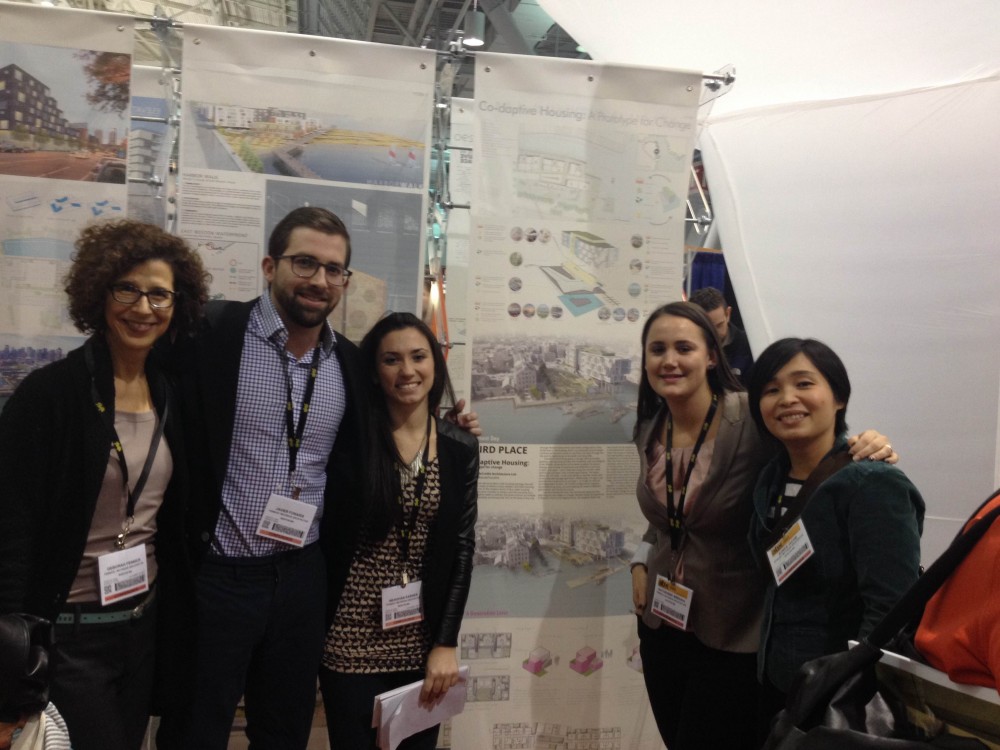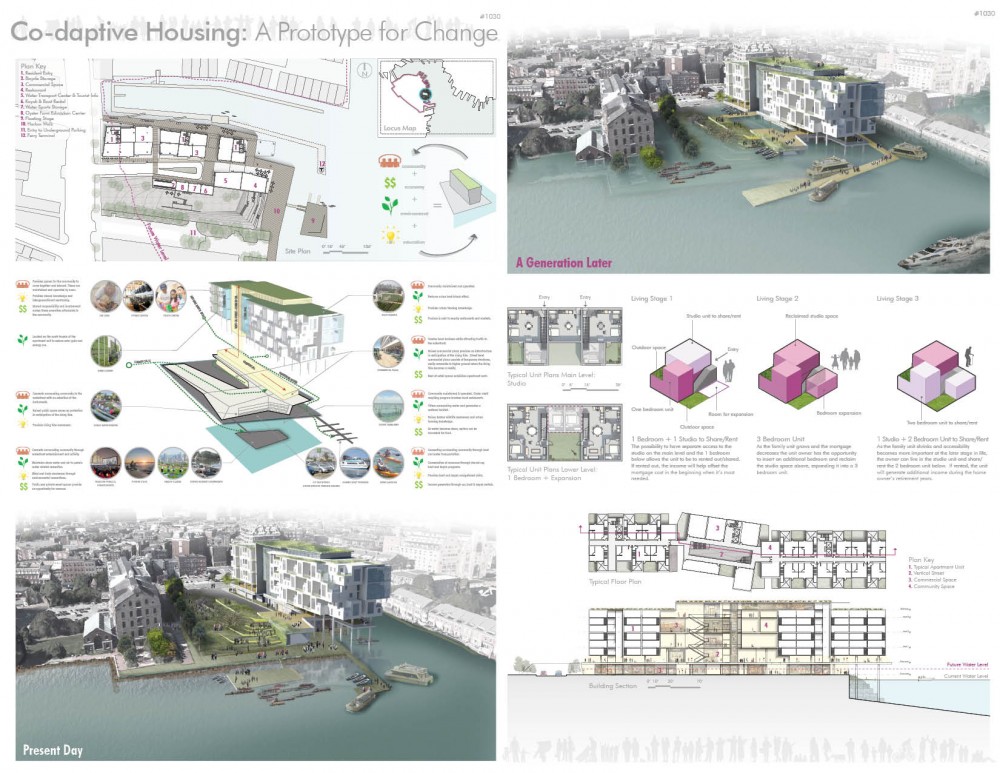reGEN Boston: Energizing Urban Living
In October, Fennick McCredie Architecture decided to put together a team to pursue the reGEN Boston competition. Being a Boston-based company, the competition appealed to us because it invited designers to create the most innovative, yet practical, multi-unit style housing typologies for urban living of the century on one of two city owned sites in the Boston Harbor. Teams were encouraged to consider the following criteria with their entries: reconnect residents with Boston waterfront; create a sense of communal inclusion on the site; housing geared towards all walks of life; a sustainable and affordable housing model to help inform the future of Boston housing; innovative methods of creating social connection between residents.
The FMA team’s project name and statement of design intent follows:
Co-daptive Housing: A prototype for Change
Co-daptive demonstrates a new housing typology that will adapt to the needs of diverse urban dwellers and their evolving living situations. In the modern world of flux, static housing types have become a burden to owners and the economy as a whole. Co-daptive seeks to address this phenomenon at multiple scales, both spatially and temporally: first at the level of the unit, through flexible home-owner and tenant configurations; then at the level of the building, which can sectionally accommodate commercial/live-work space on any floor; and lastly through the site and its relationship to the water and rising tides.
Instead of minimizing space, a concept which precludes growing and maturing families, the residential units are designed to be flexible, allowing the home-owner to adjust the square footage and number of bedrooms and bathrooms over time. In plan, unit types 1 and 2 alternate along the corridor, while sectionally unit type 1 has a studio space above. This layout allows for unit type 1 to be used wholly or partially rented, akin to the suburban garage apartment. Additionally, unit type 2 can provide more bedrooms to unit type 1, or simply be sold out as independent studios. All of these configurations maintain accessible living areas, accommodating the needs of different generations and family structures.
Like the residential units, the commercial space and site planning can also adapt to change. Situated along the waterfront of Boston’s North End neighborhood, the Sargents Wharf site was chosen for its established connectivity to the rest of Boston, a vital element for successful affordable housing. However, the water also poses a challenge: the rising tide levels. To tie into the existing fabric along Commercial Street, the ground level of Co-daptive is currently programmed as commercial space, but as tides rise these tenants can relocate along the circulation core, creating a vertical zone of mixed-use activity, what one might call a “vertical street.” This elevated program will maintain amenities for residents and the North End district, and continue to offset the rental rates for the affordable housing units. Meanwhile, the ground level can remain relevant and stay connected through public educational and recreational water activities, a floating stage, a ferry terminal, and public and private boat connections.
Each of these scales, the unit, the building and the site, work together to create a unique urban housing typology. The driving force that shapes them is the concept of adaptability. By planning for inevitable change, we can ensure that the development will remain pertinent to the needs of the community for generations to come.
Below is an image of our winning submission and some of the members from the winning team at ABX! The FMA winning team included: Javier Fornaris-Pau, Ashley Weber, Lama Bitar, Agnes Jacob, Meaghan Earner, Katherine Brekka and Michelle Callinan.
“This was a wonderful experience altogether. Personally what I found most challenging and rewarding at the same time, was coming up with different strategies that merged together an array of innovative ideas from a group of talented designers into a single project that would best meet the competition requirements in a small time frame. I could not be happier with the end result,” said FMA team captain, Javier Fornaris-Pau.
Our winning submission will also be exhibited at the Boston Society of Architects mid-December through January!









